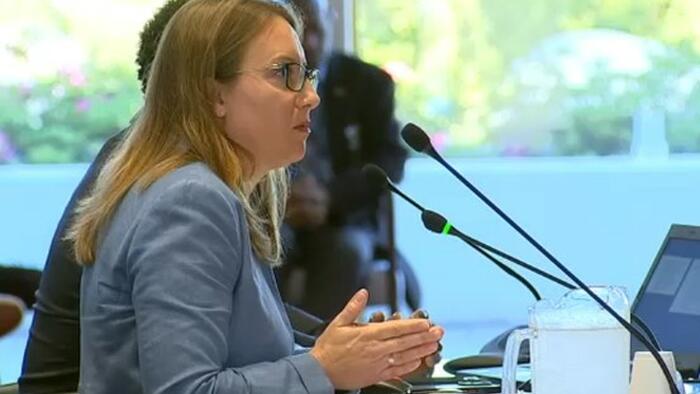Laura Hogshead, who was leading North Carolina’s recovery efforts following hurricanes Matthew and Florence, has officially left her position as the director of recovery and resiliency for ReBuild NC under the North Carolina Department of Public Safety. The announcement was made by chief communications officer Jody Donaldson, who stated that Pryor Gibson, a lobbyist for Governor Roy Cooper and a former state representative, will step in as the interim director of the North Carolina Office of Recovery and Resiliency. Following this announcement, Hogshead was no longer mentioned on the state’s website, indicating a significant change in the leadership of the recovery program responsible for managing the state’s rebuilding efforts.
Hogshead’s role primarily involved overseeing the distribution and management of hurricane recovery funds allocated by the U.S. Department of Housing and Urban Development (HUD) for areas impacted by hurricanes Matthew in 2016 and Florence in 2018. Additionally, she supervised the expenditure of funds from the U.S. Department of Treasury’s Coronavirus Relief Fund, as well as Emergency Rental Assistance allocations provided through the state’s pandemic-related support programs. Despite her extensive responsibilities, Hogshead faced criticism for her leadership and the slow pace of recovery efforts, drawing scrutiny during a recent Oversight Committee hearing where lawmakers demanded accountability from both her and Gibson regarding the program’s performance and budget matters.
ReBuild NC was established by Governor Roy Cooper to assist low-income victims of hurricanes by managing nearly $800 million designated for the reconstruction of homes in the affected areas. However, the program has faced severe criticism regarding its effectiveness and efficiency. Despite persistent calls for better performance and even resignations from various stakeholders, Hogshead held her ground, insisting that she was suitably qualified for the role amid growing concerns regarding the slow progress of recovery efforts. Governor Cooper himself acknowledged the program’s inefficiencies and urged improvements, yet Republican legislators expressed frustration at the governor’s decision to retain Hogshead, which they saw as a lack of accountability for the program’s failures.
The financial troubles surrounding ReBuild NC, particularly in regards to housing assistance, have been a growing concern. Reports indicated a shortfall of $175 million for housing projects, a figure that has swollen to over $220 million, jeopardizing the Homeowner Recovery Program that is designed to help residents repair or rebuild their homes. This financial crisis has placed additional pressure on the agency and has led to increased scrutiny from state legislators who have been vocal about demanding effective action to address these shortfalls. Senate and House members, including Senate Republican Danny Britt, voiced their collective frustrations about the perceived inadequacies of ReBuild NC, emphasizing their commitment to ensuring that the agency remains accountable.
Despite the criticisms and the mounting evidence of institutional failure, Hogshead’s departure indicates a potential shift towards a new era for ReBuild NC. With Pryor Gibson now assuming the role of interim director, stakeholders and observers are keenly watching the office’s next moves, particularly how it plans to address the significant financial challenges and organizational deficiencies that have plagued the agency. The new leadership will likely face challenges in restoring public trust and proving the effectiveness of the recovery efforts, all while navigating the complex landscape of federal funding and state-level oversight.
As North Carolina continues to grapple with the aftermath of severe hurricanes and the ongoing challenges posed by the broader economic situation, the transition in leadership at ReBuild NC marks a critical point in the state’s recovery narrative. The ability of Gibson to steer the agency toward a more efficient and effective recovery process will be crucial, particularly for the thousands of residents still struggling to rebuild their lives post-disaster. The focus will undoubtedly remain on enhancing transparency, accountability, and responsiveness to the needs of the communities that the recovery programs are intended to support. In this context, the evolution of ReBuild NC under new leadership could represent a turning point in the state’s efforts to recover from past disasters and better prepare for future challenges.

